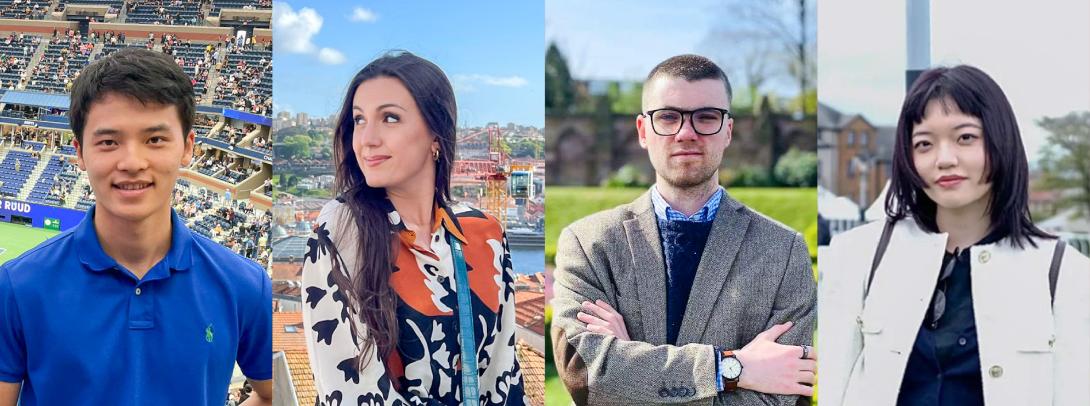Getting through university is challenging as it is, but exploring a career path while you’re at it? That’s a whole other journey. Having an alumni mentor to guide you and show you the way can be invaluable.
The NYU Alumni Executive Mentor Program, launched in 2014 by the NYU Global Alumni Programs and NYU Shanghai’s Center for Career Development (CCD) aims to provide that guiding path. The program connects established alumni with current NYU Shanghai students navigating their futures.
Over the past decade, 315 students and 56 NYU alumni have participated in the program, impacting approximately 10% of NYU Shanghai alumni. For students, the mentorship program is a way to learn from accomplished alumni in executive positions. For NYU alumni mentors, it’s a way of giving back.
“This program has a very big impact on students because we build a connection between our students and NYU alumni,” says CCD Senior Manager Ji Tang. “The alumni are leveraging their working experience and lifelong wisdom to empower our students.”
To celebrate ten years of the program, the CCD brought back four alumni to share their experiences with current NYU Shanghai students at an informal gathering on March 27. On April 20, a formal celebration, jointly hosted by CCD and the NYU Global Alumni Programs, will be held to commemorate the program’s remarkable 10th anniversary and thank the NYU alumni who have generously given their time to mentor students over the years.
We spoke with four NYU Shanghai alumni who participated in the program about the impact the program has had on their careers.
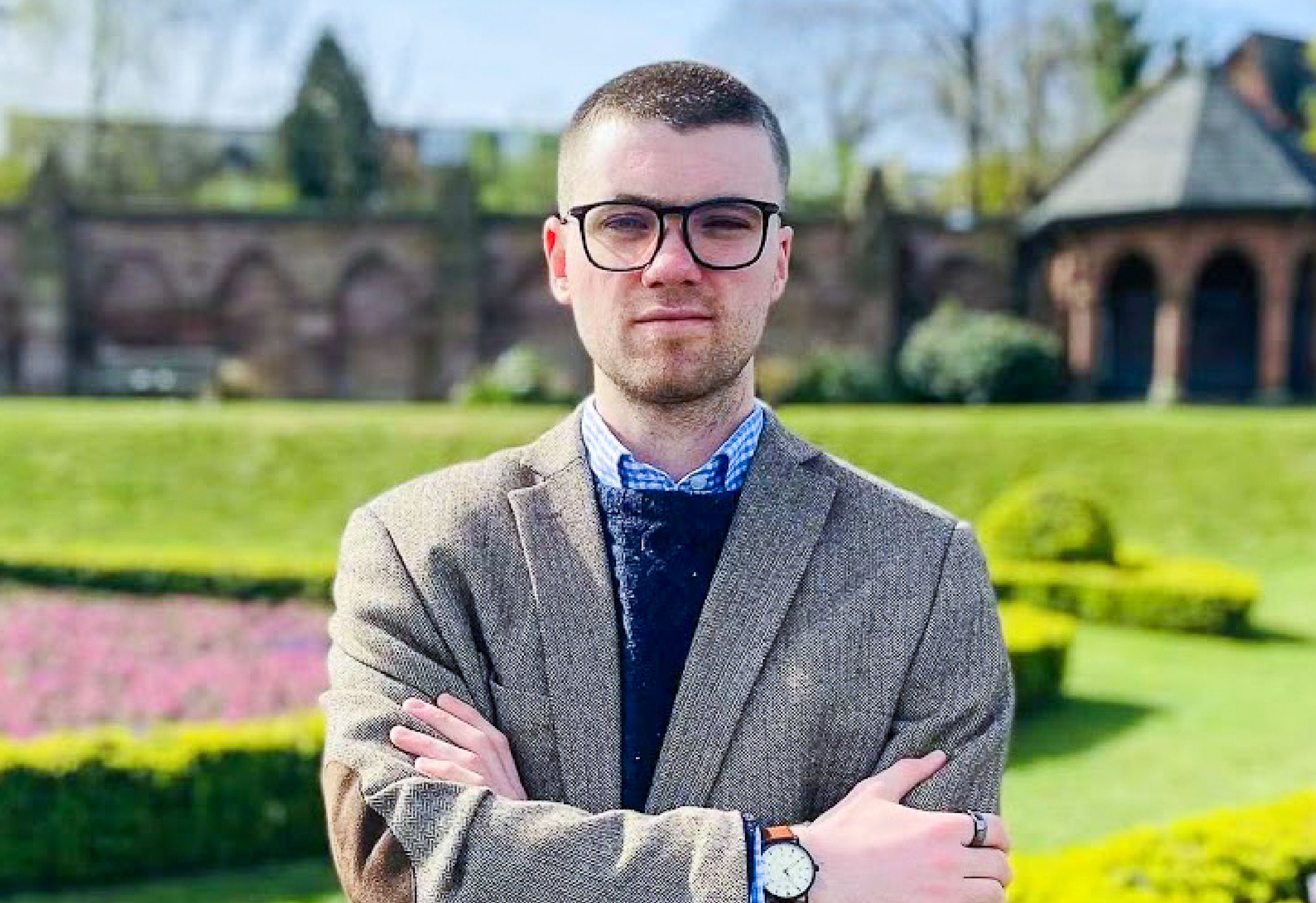
James Bromley ’18
Currently: Pursuing a Master’s Degree in economics and management at Yenching Academy of Peking University, Beijing
Mentor: Robin Cheung, Group Managing Director V-LOGIC Limited (NYU WSC ’85)
When James Bromley was a student, he wanted a mentor to learn more about career opportunities and find support navigating the transition from college to the professional world, but he didn’t expect to build such a close and long-lasting relationship. His mentor, Robin Cheung, met with him regularly, offered him an internship, and even ended up hiring him straight after graduation. But his mentor had a bigger vision for him, and encouraged him to pursue a masters degree at Peking University’s Yenching Academy.
What impact has the program had on your journey in China?
At times, I was doubting whether staying in China was the right thing for me to do, or to continue learning Chinese as much as I decided to. Robin was always very adamant that I should go deep into that. The last time we spoke was a couple of months ago and he told me, “I really like seeing that you’ve been staying in China for a long time. I think it’s cool what you’re doing.” Robin’s encouragement to stay curious and to learn more about China and Mandarin has been helpful along the way.
How did your mentor help you find your place in the world as a young professional?
I think it makes the process of transitioning a lot smoother, and a lot less daunting as well. There is real value in that, and it’s a safe space, in which you can feel out different pathways and ideas. Having a mentor is a great soundboard for putting your ideas and thoughts about your own development out there, and hearing feedback from somebody who's experienced in that area. Robin also helped me to stay more focused at school. Through this program, I started to see those connections between what I was studying in the classroom and how that could potentially help my professional development. Robin was so invested in this program. I respected the fact that he was so willing to give us his time. He's super busy with work and family, and yet so willing to put time into helping an NYU Shanghai student. I thought that was really cool, and something I would love to do if I were also in that position as well.
Robin says:
I think I learn more from them (the mentees) than they learn from me. Most of them are already well on their way. I hope that they see the opportunities within themselves. I'm grateful if I could show them a little bit about myself that inspires them or sparks their interests.
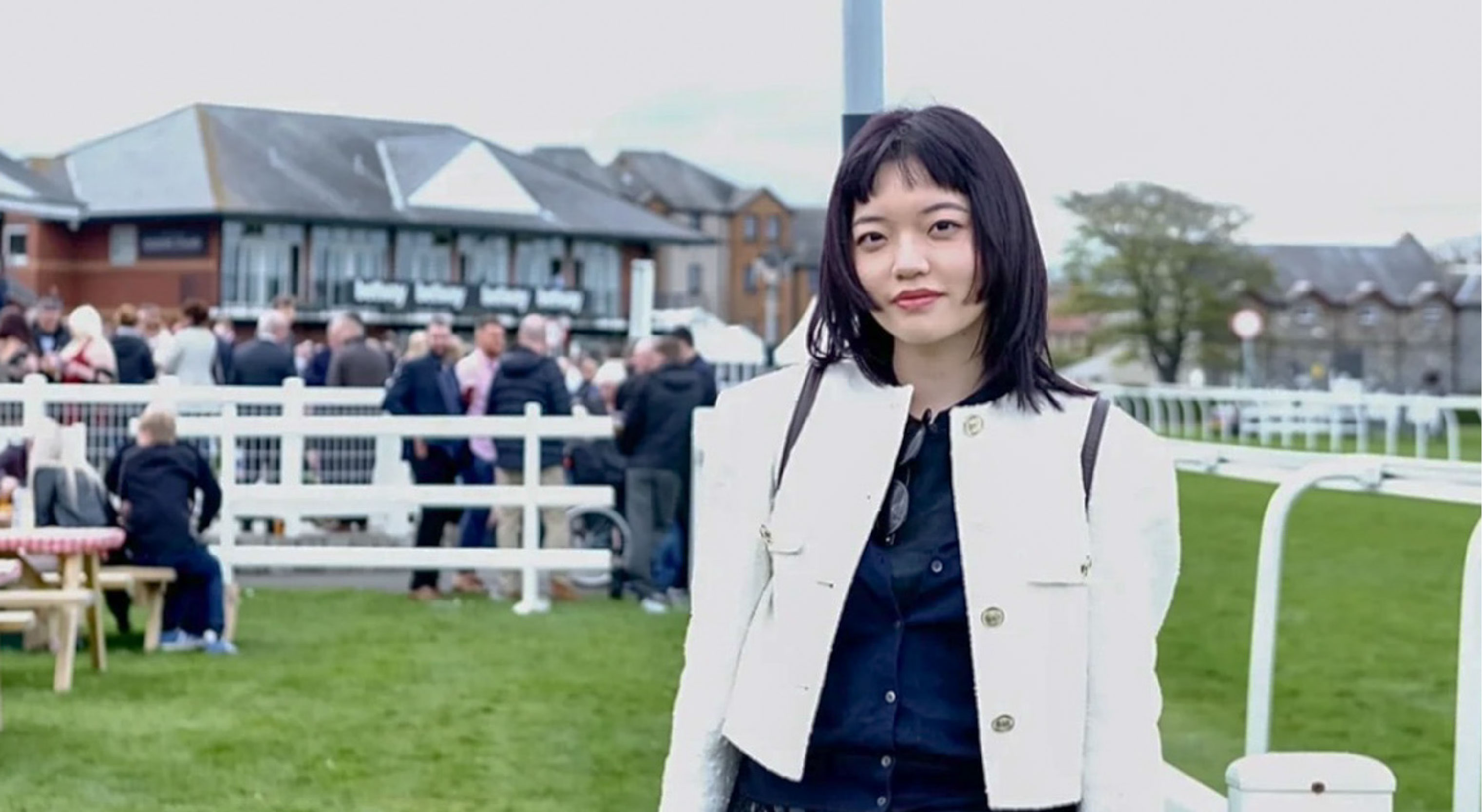
Wang Xinyi ’20
Currently: Business Analyst at McKinsey Shanghai
Mentor: Crystal Gao, Partner and CFO at Soul Capital (NYU STERN ’00)
Wang Xinyi had an idealized perception of consulting before meeting her mentor, Crystal Gao, who held a key finance position at McKinsey back then. Gao gave her a peek behind the curtains, showing her a more realistic perspective of the job and insights into the commercial service industry. After exploring different industries and getting a master's degree from Imperial College London, she ultimately joined McKinsey Shanghai as a Business Analyst.
How has having a mentor contributed to your career development?
Crystal once invited me to McKinsey's Shanghai office, where she introduced me to different departments. She highlighted a new department that consisted of people with engineering and UX design backgrounds, showing me the diverse roles available beyond traditional strategic consulting. This really broadened my perspective on job possibilities.
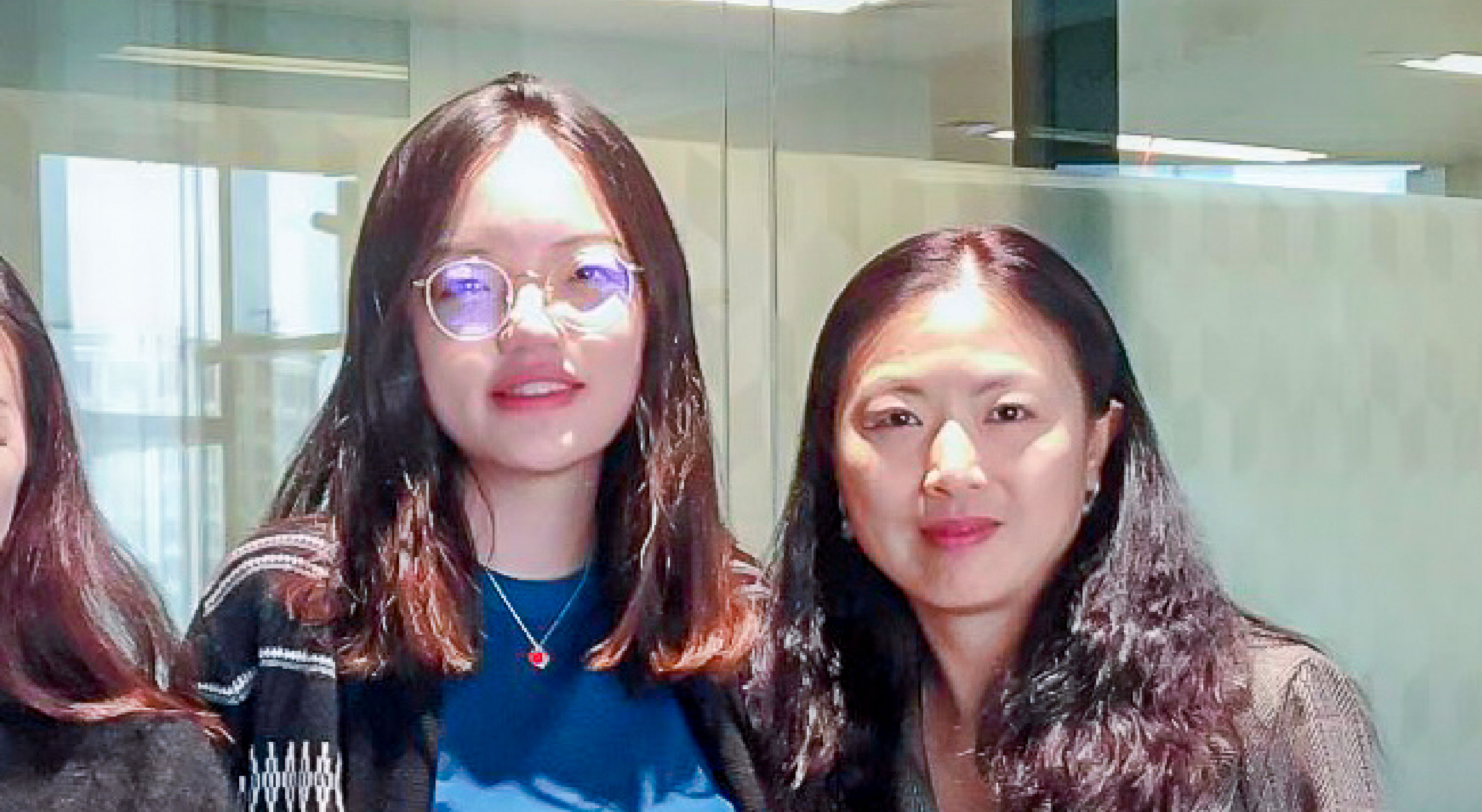
Wang Xinyi and Crystal Gao at McKinsey’s Shanghai office
She encouraged me to explore roles outside of consulting to expand my skill set, which I did. I participated in Google's Women Engineers program, worked as a management trainee at Dyson, and interned in digital strategy at UCCA. These experiences provided insights into various industries and departments, proving immensely beneficial in my current consulting role.
When I landed the job at McKinsey, I immediately shared the news with Crystal. While my current job content doesn't align closely with my academic or internship background, the logical analysis skills required are universal.
How else has Crystal inspired you as a remarkable female leader in the industry?
As a mother of three children, Crystal has candidly shared with me that achieving work-life balance is about making choices rather than seeking perfect equilibrium. Despite the challenges, she has managed to keep her work, family, and personal life well-organized, showing grace and attention to detail. Although I haven't reached this stage of life yet, I’ve learned from her the significance of strong self-discipline and motivation. Sometimes we have to push ourselves to keep good habits, which undoubtedly pays off in the long run.
The program gave us a valuable chance to learn from someone with rich experience in both work and life. It's not just about finding job opportunities; it's about understanding their decision-making process and their approach to life, and applying those insights to ourselves.
Crystal says:
I hope that Xinyi can make the best use of McKinsey's platform. She doesn't need to be concerned about long-term goals but rather go step by step and keep doing what she's doing. I also wish her good health because career development is a marathon.
I feel that the students at NYU Shanghai are much more mature than I was at their age. They have clear ideas and goals for both study and career. The global environment at the school has made them outperform many other students in understanding and appreciating diverse cultures.

Gabriela Naumnik ’19
Currently: Senior Product Manager at Pypestream working remotely as a digital nomad
Mentor: Julliet Pan, Founder/Producer/Director at SHE & JUL MEDIA (NYU TISCH ’04)
Gabriela Naumnik joined the Program with a dream of becoming a movie producer. Within a matter of months, she went from amateur filmmaker to gaining entry to the Cannes Film Festival in 2018 for her short film, Cookie Heart. She says the lessons and skills she has learned along the way have been invaluable.
How did you grow throughout the Program?
I developed a really good understanding of what my strengths and weaknesses are. I also understood very well what I liked and didn’t like doing. That’s important to know because it ties into which career you will select eventually. I also learned about the importance of building a strong network. My mentor, Julliet, taught me “everyone needs to create their own career path.” You cannot replicate somebody else's path. You have to create your own. She taught me a lot about the importance of being open and putting yourself out there. Thanks to that, I developed a pretty solid network, which led to a bunch of different internship opportunities that strengthened my experience and knowledge about the field.
What are your main takeaways from the Program?
I always wanted to gain experience in the film industry, and this program really fast-tracked that for me. Within barely a year, I skyrocketed from zero experience to going to the most prestigious film festival in Europe and producing a short film that received a lot of awards. So that was really incredible. And even though I did not decide to pursue a career in film as a producer, I gained a lot of skills that make me a better product manager. It allowed me to gain the experience that I always wanted to get and discover a field that I was very interested in, and it helped me to meet such a life mentor, Julliet, with whom I'm still in touch.
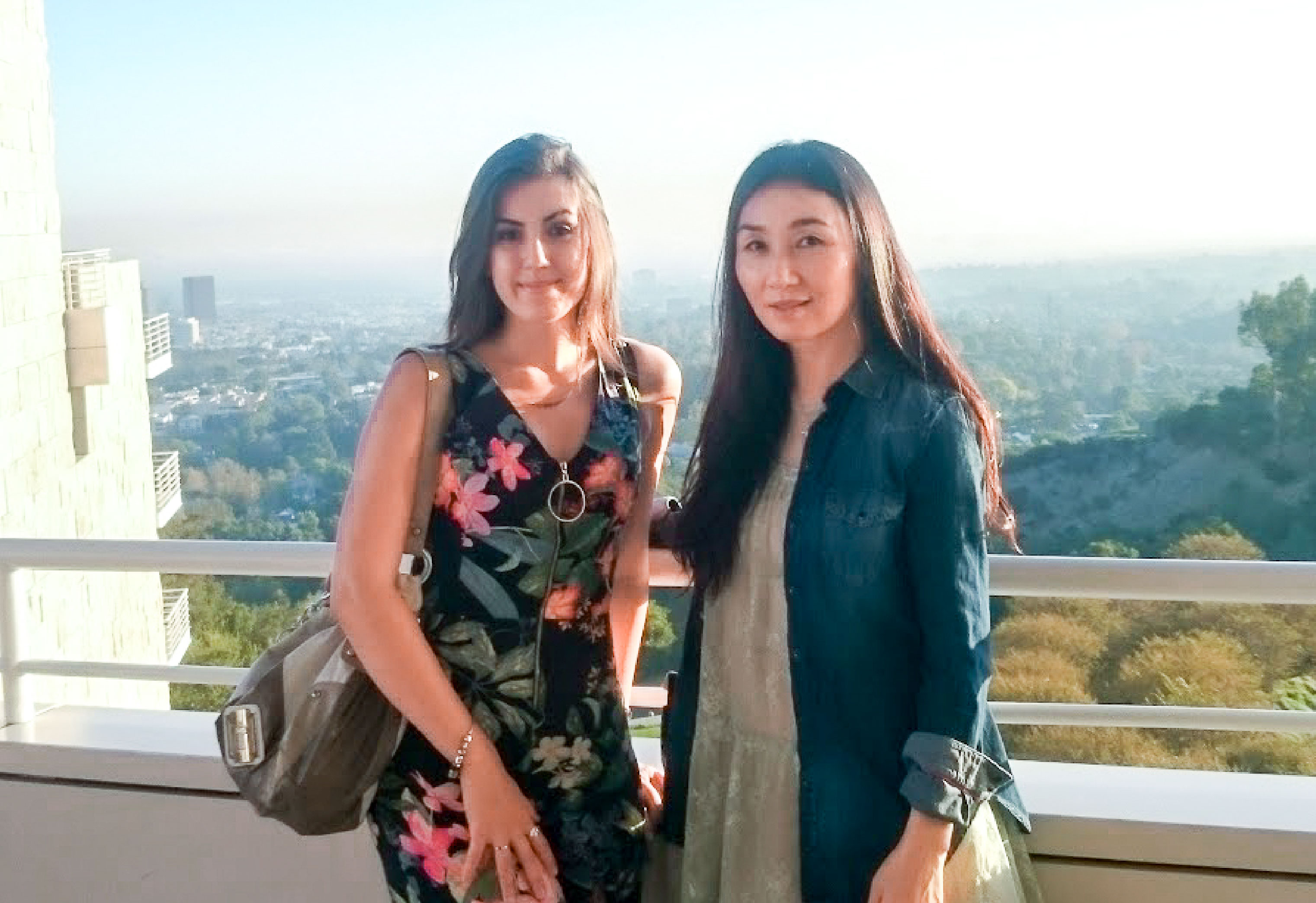
Julliet says:
I think this program empowers students. It's giving them the keys to the driver's seat of their own future. And we as mentors are in the passenger seat, just trying to give them some guidance as needed. So the students get a glimpse of the world through the lens of seasoned, experienced mentors, providing them with leaders who can offer them a fresh perspective, and that is priceless.
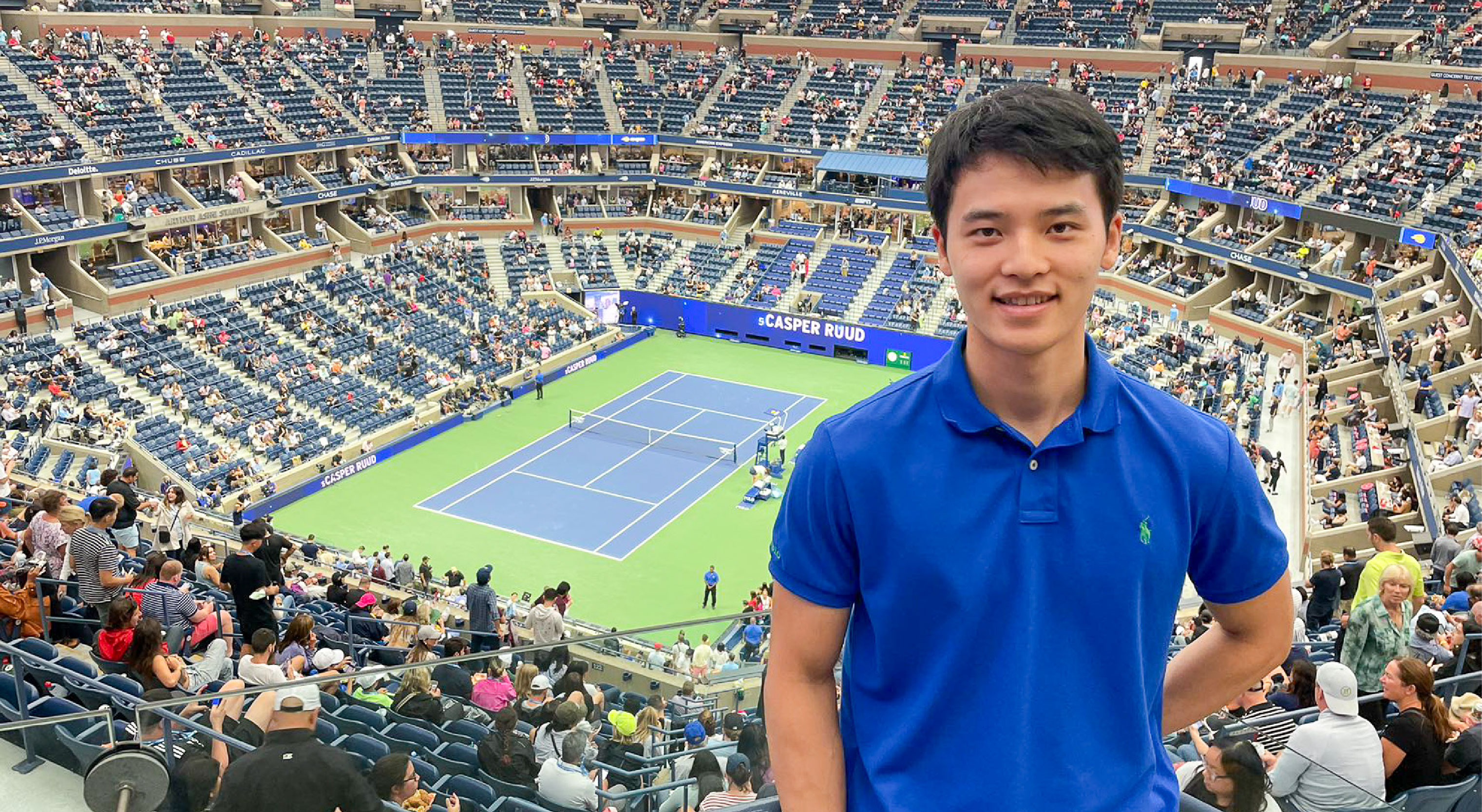
Yang Zhiheng ’22
Currently: Quantitative Researcher at Balyasny Asset Management in New York
Mentor: Ji Zhen, Managing Director at Kohlberg Kravis Roberts (NYU CIMS ’97)
Yang Zhiheng had a limited understanding of potential career paths as a math student until his mentor, Ji Zhen, introduced him to Quantitative Finance. This newfound interest led him to pursue a master's degree in Quantitative Finance at MIT and ultimately secured a position at Balyasny Asset Management in New York.
What significant impacts has this program had on your career development?
Zhen's successful transition from a tech background to finance inspired and motivated me to venture into a new career path in finance. Following his advice, I began my first quantitative finance internship at a fund in Shenzhen. Additionally, he shared valuable insights into different job roles and industry dynamics, and connected me with industry professionals.
He also provides me with career advice, encouraging me to expand my social network and explore new opportunities. It was because of his advice that I connected with many outstanding alumni. I’ve learned a lot from them.
Did you build a deeper connection with him beyond the program?
After the program ended, I proactively updated him on my recent developments, such as my plans to apply for a master's program or the internships I've got. He would ask me for advice for his son’s academic career.
Later, when I was studying for my master's at MIT, he and his wife even dropped by and treated me for a meal while visiting their son who was also attending high school in Massachusetts. It was truly touching to encounter familiar faces in a foreign land.
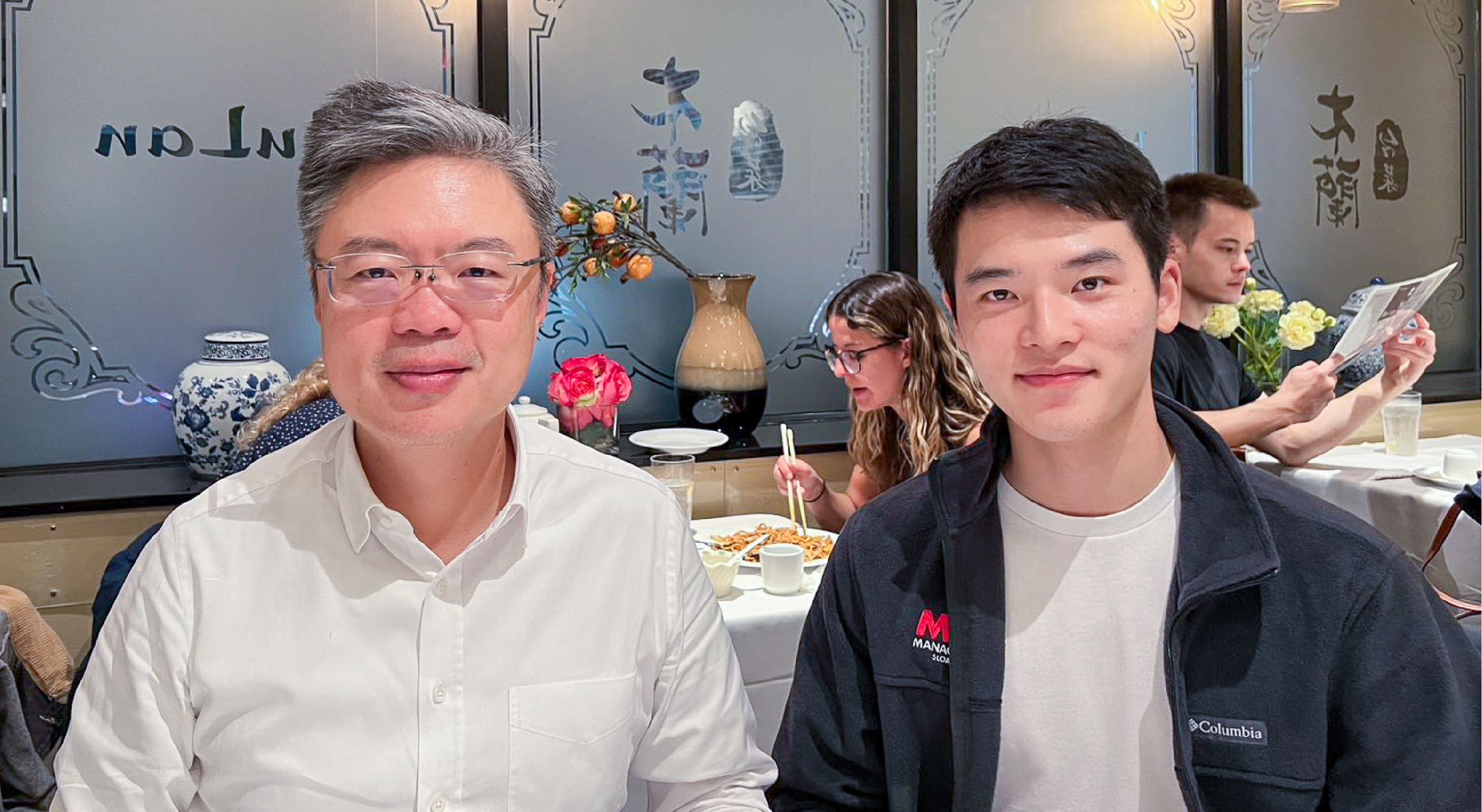
Yang Zhiheng having dinner with Ji Zhen and his family in Boston
Because of this closer connection, I learned a lot from his everyday life. He strikes a good balance between work and life; I often see in his and his wife's social media posts that they cook together, which really impresses me. As an NYU alumnus, he gives back to the community that helped him, which inspires me to explore ways to give back to NYU Shanghai and help fellow students.
Ji Zhen says:
I can feel that Zhiheng is a self-driven person who truly enjoys improving himself. He’s got strong communication skills, especially the ability to communicate with superiors and to promote himself. It is the key to success and a significant advantage for him. I hope that in his new position, he can maintain an entrepreneurial mindset, be sensitive and determined in seizing opportunities.


